How To Engage In Social Media While Protecting Your Mental Health - Page 4
Share the post
Share this link via
Or copy link
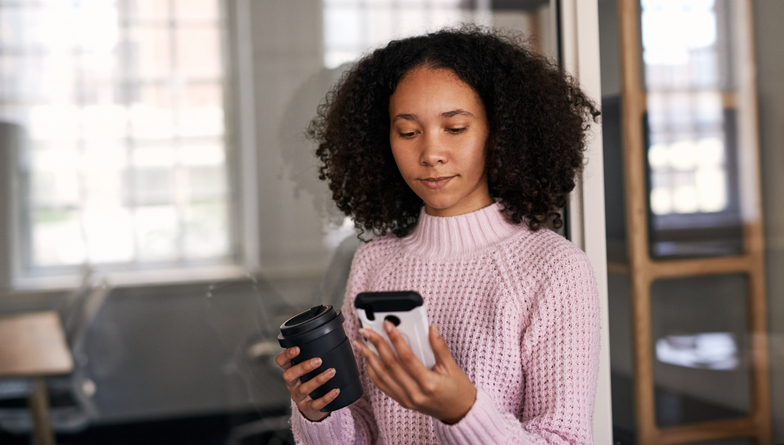
Source: Hiraman / Getty
U.S. Americans spend on average over two hours a day on social media. That figure has increased by over an hour since 2012, so it’s nearly doubled. Is that a problem? Considering that research has found that an increase in social media usage correlates directly to an increase in depression, it sort of is. Additional studies found that checking Facebook can lead to feelings of envy. Envy is something we feel when we think we don’t have enough, and anything that makes us think that can naturally lead to depression, or thoughts that one is falling behind in some way. Being able to compare our lives to those of millions of strangers, in detail, is a relatively new development for humans. In as recently as the year 2000, if you wanted to know what an old middle school buddy was up to, you just had to call her up directly or find out through the grapevine. You couldn’t look at recent photos from her cruise in the Mediterranean or watch a video clip from her wedding. We have such an intimate glimpse into the lives of others through social media, and sometimes, that’s not a good thing.
Even though studies would indicate that getting off social media entirely may be the key to happiness, that simply isn’t an option for everyone. Many professionals know that social media is where potential employers or clients go to find their services. Sometimes social media is the only way to capitalize on certain discounts, or simply track down an important contact. So if you must engage in social media, you might benefit from these tips on using social media while managing your mental health. These tips were provided by Latasha Matthews, licensed therapist, and author of “The Dumping Ground.”
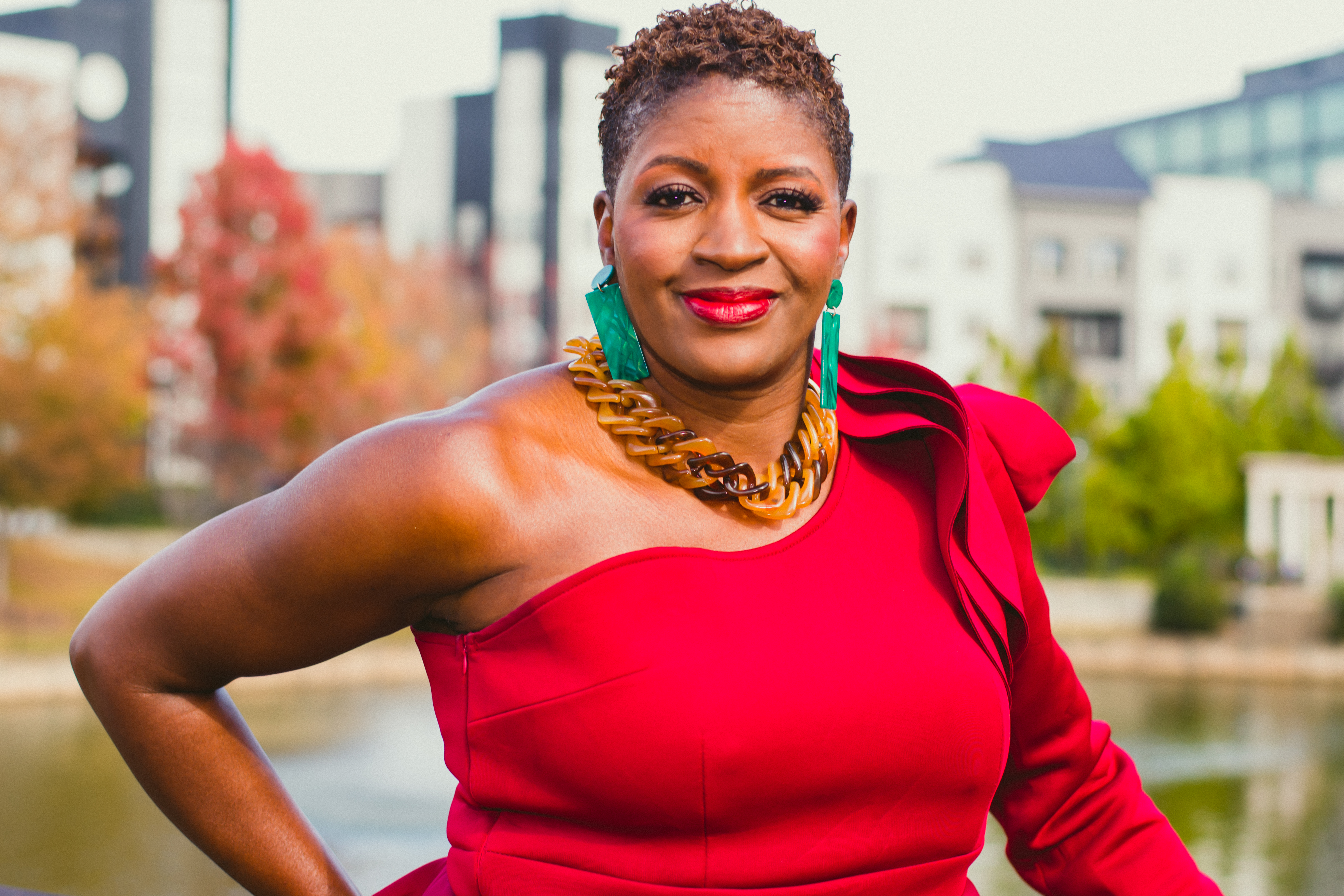
Source: Noah Heinrich / Noah Heinrich
Don’t go down the rabbit hole
So often, we go on social media to check one thing – the time of that Facebook event, a family member’s birthday, or the link to a friend’s recently published ebook. But, what happens is that we can get pulled in. It’s a place of overstimulation. Ever post has a controversial and intriguing headline. Before you know it, you’ve been reading (or engaging in) the combative comment threads on one post for an hour, grabbing article links to back up your point, and getting all worked up. Suddenly, two hours have passed. Matthews advises we, “Take breaks from social media by setting a timer when needed.” Just like with brushing your teeth or putting something in the oven, you set a timer, and when it goes off, that’s it. You’re done.
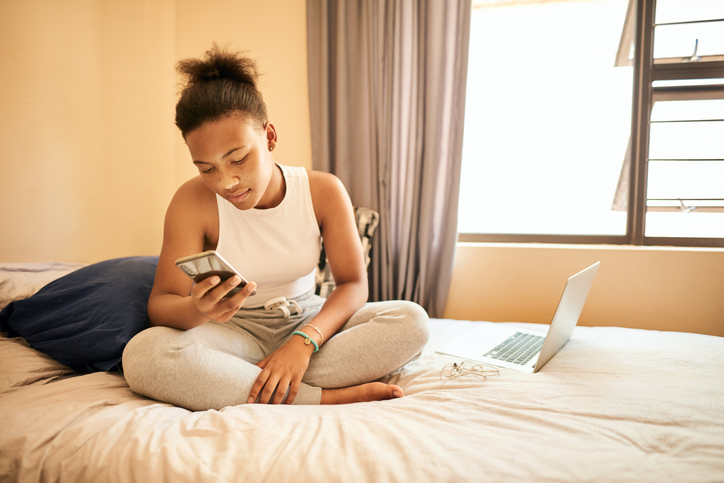
Source: AJ_Watt / Getty
Create a safe space
Love MadameNoire? Get more! Join the MadameNoire Newsletter
We care about your data. See our privacy policy.
Between the many social media apps and the many devices we access them on, it can feel like the tumultuous world of the Internet always has access to us. Sometimes, after your phone beeps seven times in an hour to let you know that somebody updated their status and somebody commented on your post and somebody followed you, it can feel like social media is creeping in on us – like it’s in our homes. Social media can provide an opportunity to try an important life exercise: understanding that not everything, or everyone, requires an answer right away. Matthews says to “Turn off notifications as you prepare for bed.” That should be a time when you’re slowly distancing your mind from the world’s troubles and responsibilities. It can be healthy to disengage from social media for at least an hour before bedtime.

Source: FG Trade / Getty
Take note of your emotions
“Monitor your feelings as you are viewing social media. It can be exhausting at times. Viewing disturbing content can cause anxiety and depression,” states Matthews. It could be an interesting experiment to rate your feelings of depression and anxiety before you engage in social media, and then re-rate those feelings after looking at social media. Because the increase in those negative feelings can happen gradually, we can fail to realize that we are in much worse shape after closing that app than we were before opening it. Rating your feelings, and being honest about them, can give you valuable and undeniable insight into what social media is doing to your mental health.

Source: PeopleImages / Getty
Spin it into a positive
Self-improvement, goal achievement, success, progress – these are popular things to display on social media. It’s someone’s fitness journey. It’s someone’s new home that they purchased in cash. It’s someone’s wedding. It’s someone’s first day on a new job. If you aren’t careful, you can view these through the lens of, “These are things I don’t have. My life is lacking.” Matthews suggests spinning that into a positive. “Monitor your comparison of other people’s posts. Using posts as inspiration instead of judgment will help your mental health.” If that friend or family member was able to lose that weight/save the money for that down payment/get that job, you can, too. Rather than envy them, shoot them a message congratulating them and sharing in their victory. Learn from their success.
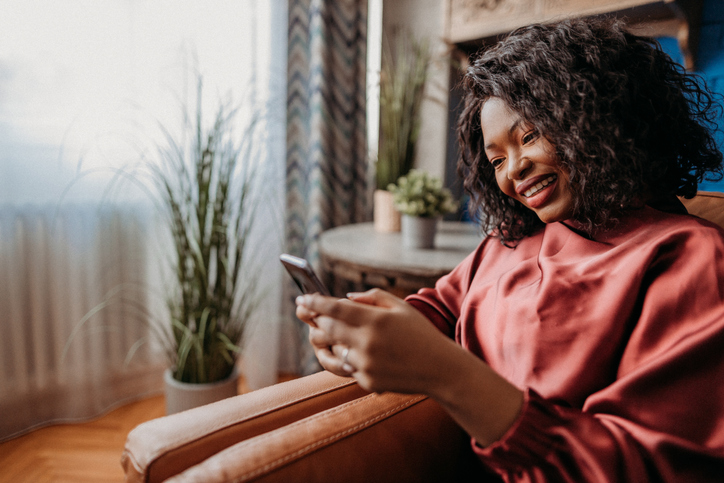
Source: milan2099 / Getty
Follow consciously
“Monitor your followers and the people you follow,” recommends Matthews. “Determine how you want to use your social media page.” Sometimes when someone follows us, we feel pressure to follow them back – especially if it’s someone we know personally. But sometimes, Greg from the office is very different as Greg on Facebook, and Greg on Facebook posts disturbing, aggressive rants about the state of the country or society that make you uneasy. You can mute Greg. Or, you can simply choose not to follow him back. Every person you follow is a person whose thoughts and ideas you’re allowing to get to you. It requires immense mental fortitude to not let their posts influence your feelings, so the easiest thing to do would be to not follow in the first place. You don’t owe anyone a follow.
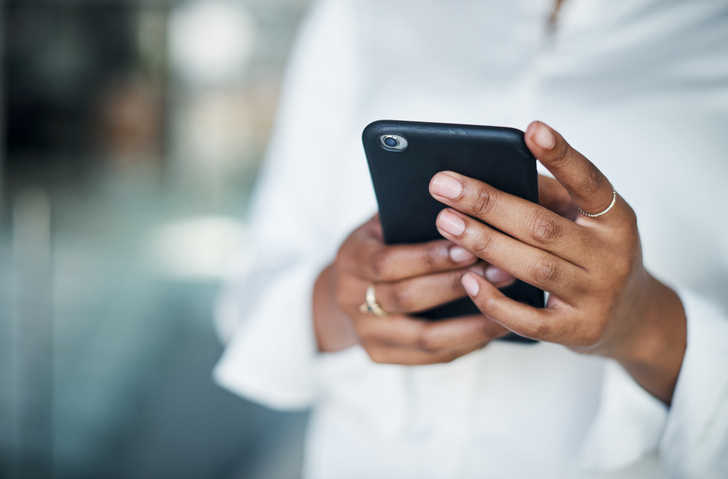
Source: PeopleImages / Getty
Block consciously
“Everyone does not need access to your page,” states Matthews. And she is correct. Remember you can put certain friends on limited access lists on Facebook, so you can accept their requests without allowing them to see everything you post. Some people simply don’t know how to engage in your content in a way that has your best interests at heart. Maybe you don’t need that one aunt from across the country sending you 12 bible verses and telling you that you’re living in sin when she sees you took a vacation with your boyfriend. So maybe it’s best that that aunt doesn’t have access to your photos.

Source: Westend61 / Getty
Don’t accidentally multi-task
You’re sitting in the waiting room of your doctor’s office. You’re standing in line at the grocery store. You’re sitting in the back of an Uber. You’re waiting for something to be finished in the oven. What do you do? You open social media. It’s a way to “pass the time.” But we often don’t realize that there’s nothing passive about looking at social media. It can actually cause us a lot of stress and show us content that puts us in a rage, makes us feel we have to do something about an issue, or in some way calls us to action. It’s not simple entertainment, which is why Matthews suggests we, “Limit where you use social media. Social media can be exhausting and tiresome and distract from things that are important.”
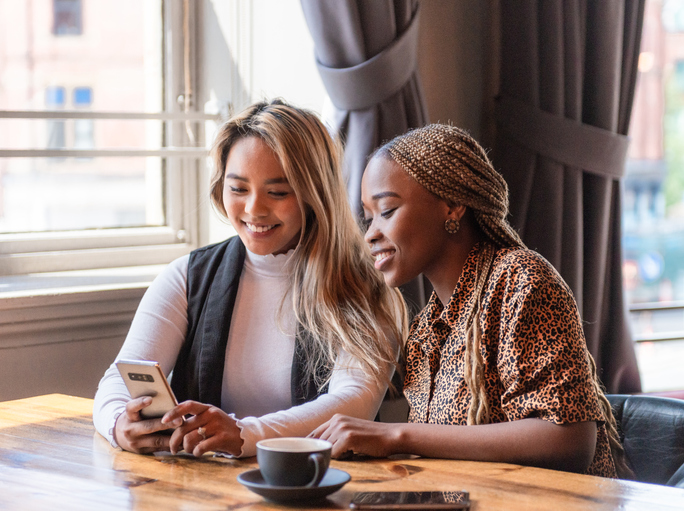
Source: georgeclerk / Getty
Don’t replace friends with “friends”
Your time with your IRL friends is so important for your emotional wellbeing. It’s also hard to get. Between everyone’s work schedules and families and other social obligations, how often do you really see your good friends? Probably not as much as you’d like. You can access your “friends” on social media any time. So never let social media interfere with you fully enjoying and gaining the love, support, and energy you get from real-life interactions. Don’t scroll Instagram while at lunch with a friend. Don’t Tweet while shopping with your BF. “Adopt some self-discipline and focus on spending time with family and friends,” states Matthews.
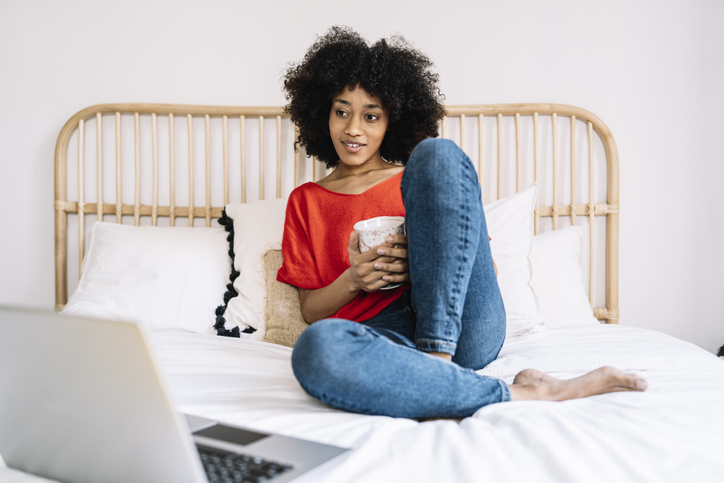
Source: Westend61 / Getty
Be the architect of your social media experience
The truth is that, when used in a smart way, social media can enhance your mental health! You just have to be very selective about what types of content you consume. Social media is just, after all, another form of media. Like with books, movies, or music, you can select the stuff that leaves you feeling good and ignore the stuff that leaves you feeling dark and negative. “Use social media for fun. View happy stories and humorous light topics that help build happiness and joy,” suggests Matthews. Just because there is always world news to follow on social media, if you choose, doesn’t mean you have to. You can have your designated news consumption time when you watch CNN for 30 minutes each night, and social media can be all about funny memes for you.
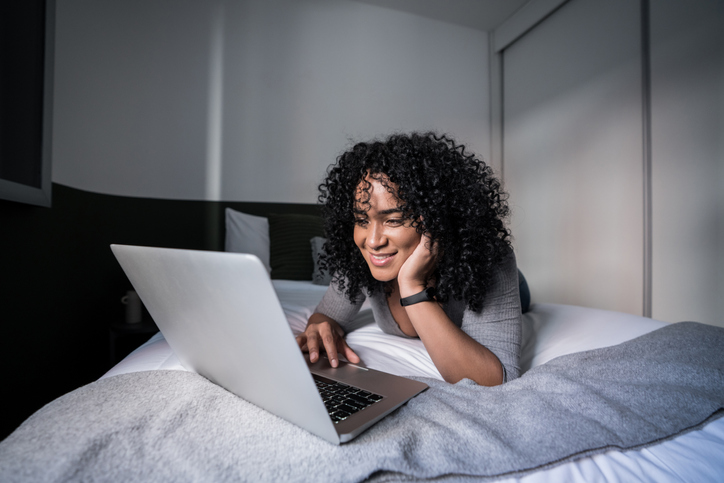
Source: FG Trade / Getty
Follow mental wellness pages
“Use social media for business, gaining knowledge, and supporting your growth. All these areas will help your mental health,” says Matthews. Remember that there are some wonderful social media pages dedicated to elevating mental health. You can find therapists, life coaches, yoga teachers, and other wellness experts to follow. You can follow pages that simply post uplifting, confidence-boosting quotes every day. You can follow pages that only share stories about human kindness and perseverance. You are the information you consume, as it influences your thinking, and that influences your actions. Social media is often villainized for ruining mental health, but when used correctly, can actually better it.
-

Meet Dominique Fils-Aimé, The Haitian-Canadian Star Redefining Jazz For A New Generation: ‘This is My Vision' [Exclusive]
-

Cooking With Purpose — How Brittney Williams Honors Her Caribbean Roots Through Food
-

9 Famous Lesbian Women Who Were Married To Men
-

Purpose Behind The Lens: How Nate Edwards Films The Extraordinary Inside The Everyday








